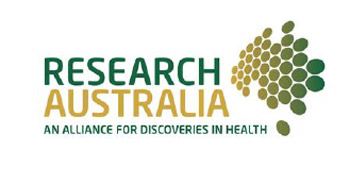Federal Budget 2016

Federal Budget 2016
Research Australia, which represents 160 health and medical research organisations, has described last night's budget as mixed bag – with some wins, some losses and some more detail required.
'The Federal Government is making all of the right noises when it comes to innovation, health and research, and it is pleasing that they remain on the agenda," said CEO Nadia Levin.
'The budget would be described by my members as a combination of -treatments, placebos and nocebos', and the challenge for government is to back it up with funding."
Medical Research Future Fund: continued commitment but changed funding levels and timetable
The Government is now anticipating meeting its $20 billion target for the fund in 2020/21, compared to the 2019/20 timeframe outlined in the 2014 budget.
Further, funding in the 2015/16 financial year has been reduced to $0 from $10 million, though it has been increased to a projected $61 million in 2016/17, compared to $53 million last budget.
'The sector will be encouraged by continued commitment to the fund, but disappointed about changes to short term funding and the medium term implementation timetable," said Ms Levin.
'Every year it is delayed is another year that promising research projects, with potential for new discoveries that saves lives and improve quality of lives, are unfunded and unrealised.
'To keep this in perspective, we are only talking about a $20.5 million shortfall over four years – but a $20 billion program being delivered over, now, six years.
'While there is no doubt that is linked, at least in part, to issues with implementation of the funding measures, it does highlight that we need to keep the pressure on government to deliver.
Biomedical Translation Fund: an exciting concept we look forward to discussing with government
'Our organisation and members are excited about the prospect of the Biomedical Translation Fund, and look forward to discussing it with government, and seeing the detail released.
'In particular, a key focus of Research Australia is the translation of work in laboratories into results for Australians, and we hope that the fund will provide a vehicle for furthering this.
Australian Research Council funding for Discovery and Linkage Programs: down, not out
The budget for the ARC Discovery Program is down $45.3 million over the three years 2016/17 – 2018/19, compared to last year's budget.
This program delivers funding for fundamental or pure research – to develop the scientific knowledge that forms the building blocks of applied science.
'The Discovery Program is the equivalent of the National Health and Medical Research Council (NHMRC) for non-medical researchers, but has high relevance to our members," said Ms Levin.
'Disciplines as diverse as biomedical engineering, psychology, and biology benefit from this programme, which are all important parts of the health and medical research ecosystem.
'While significant funding does remain, I would encourage the government to review this in due course."
The Linkage Program brings together universities and industry, and was singled out in the Government's National Innovation and Science Agenda (NISA) as an important component of Australia's innovation system.
'Medical research cannot be viewed in isolation, and the achievements and outputs that come from this fund can benefit us all," said Ms Levin.
'While it was announced that from 1 July 2016 the programme would be open to continuous applications and decision making would be fast tracked, there is no additional funding for it."
For a copy of Research Australia's full Budget Policy Alert, go to http://researchaustralia.org. Full copies of the budget papers are available at www.budget.gov.au
MORE



